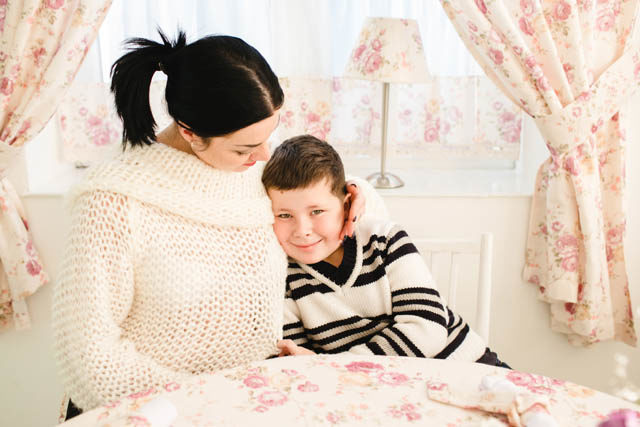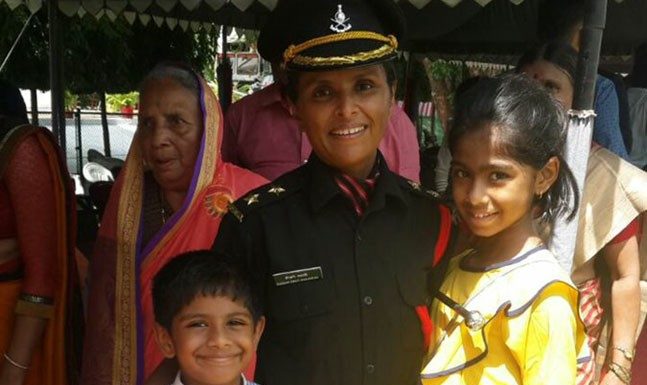Body Shaming: (noun) the action or practice of humiliating someone by making mocking or critical comments about their body shape or size.
We all are well aware of the power of words. Often, a kind word heals. A word becomes a symbol of power. A word changes the meaning of whole sentences. A word may also humiliate. A word may shame. A word may destroy.
Such is the case with body shaming. As parents, we are quite concerned about the bodies of our children and how healthy they turn out be. This is quite understandable. However, many of us can end up being too critical about the same- consciously or unconsciously. You may wish to create a positive impact in your child’s life, but end up spreading negativity. Criticising and regular depreciation can harm a young child in ways unimaginable to adults. Imagine having to hear about an obvious ‘weakness’ of yours day in and day out in the form of taunts, sarcastic remarks, scolding, and jokes. Any individual is bound to feel depressed and dejected if subject to such humiliation on a regular basis. Then how is it possible that the impressionable mind of a child will not be affected by it?
Staying body positive in today’s world is a difficult task. Why? This is because the world has become too mean. Everywhere you see, you find pictures of men with 6,8,10 pack abs and women with sculpted bodies and barely any curves being idolised and used as temptations. Everywhere we have numerous cases of body shaming, at every stage in life which includes even pre- teens. Even teenagers (whose bodies are not even formed properly yet) expect themselves to have a body akin to famous actors/actresses and models. Everyone is desperate to have the ‘ideal figure’, which sadly, does not exist. This stigma has sunk so deep into our society’s roots that everyone is now a victim- directly or indirectly. Subconsciously, we all wish to have that perfect figure now, and keep cursing ourselves for not being the exact weight that we aspire for. This kind of an attitude is completely incorrect and we must not let our children especially, become victims of this trend.
Inculcating a strong positive attitude regarding one’s own body is a must in every household. If your child is overweight/ underweight or has any other physical abnormality, chances are that he/she already hears a lot about it from his/her friends or peers. Why would you, as the child’s strongest mental support, add to this misery? You must be the one who pushes the child forward, encourages him/her, and leads the child to a healthier outlook. You must make the child aware of his/her limitations and requirements so that the child does not end up doing extreme things like binge eating or starving oneself.

Here’s how you can avoid body shaming, and have a more balanced approach at home:
USE YOUR WORDS WISELY
It is possible that your child needs to be a healthier version of herself/himself. The child may be overweight and need to modify his/her diet and lifestyle. The child may also be slimmer than usual and be in need of more nutritious food and appropriate exercise. As a parent, you must confront the child and let him/her know of this. However, you must be careful in how you project your thoughts. The child must not feel ashamed or humiliated or hopeless; instead, the child must feel encouraged to make a change. Do not use harsh words or insults. Do not confront the child front of any friend/relative/peer/teacher etc. Do not use words like ‘fat’, ‘obese’, ‘ugly’, ‘disgusting’, ‘anorexic’, ‘too fat/short/skinny/hairy/dark’ and such others. It will only lead to a highly negative body- image.
BE A SUPPORTER
Be different than the child’s friends or peers. Be the supporter he/she does not have. You must be the person who leads the child to healthier life, not a critic who constantly complains. The child must be aware that he/she can approach you in times of victory AND failure in the process, and not be afraid of what you might think about it as a parent. You must not make comparisons with other children or the child’s other friends. You must be the reason he/she relies on for the belief that a change will definitely come, or the fact that you are someone who will love him/her no matter how fat/skinny or how fair/dark the child is. Acceptance is the key, and the child must be aware that you understand child’s natural form.
BE THE SOLUTION PROVIDER
As a parent, it is your duty to not just help the child realise the worth of his/her body, but also recommend positive and healthy solutions for the same. If a child is dark complexioned, you must encourage the child to be proud and accepting of the same. You can help the child understand how to bring out the best within herself/himself by wearing colours that look good on such skin types. If a child is underweight, you can help devise a good diet chart or show him/her to a nutritionist so that the child can adopt a better lifestyle and be strong. Similarly, an overweight child can be encouraged to exercise and obtain a healthier body.
TEACH YOUR CHILDREN TO LOVE THEMSELVES
It is important for a child’s self-esteem and self-confidence that he/she remains happy and content in life. For this, loving one’s own self is critical. The child must always strive to be a better version of their own self, but not kill themselves in the process. The child must keep growing and improving, but also accept their bodies limitations as natural and obvious. As a parent, you can imbibe these values in your children and teach them to love themselves. This will teach them to not just filter out the negativity from the people around them, but also make them discerning individuals who do not body- shame others.






























